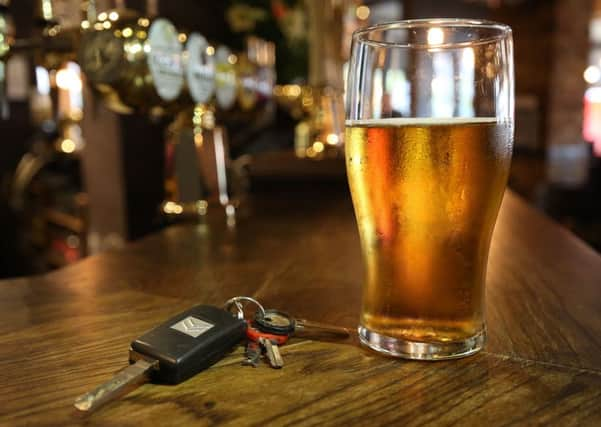Colin Valentine: Drink-drive limits have hurt rural pub industry


Scotland’s new drink-drive limits are a tricky and emotive subject. Any attempt to discuss the issue runs the risk of accusations of condoning drink-driving, or dismissing the very real dangers posed by people who get behind the wheel with impaired abilities because they are drunk. For that reason, I state up front that neither I, nor the organisation of which I am chairman, the Campaign for Real Ale, condone drink-driving and strongly recommend that people do not drink and drive.
Scotland’s new drink-drive limits were introduced in December 2014, reducing the limit from 80mg to 50mg of alcohol in every 100 millilitres of blood. In practice, this means drivers are restricted to consuming less than a pint of average strength beer, and we all have to be very careful about driving the morning after a night in the pub.
Advertisement
Hide AdAdvertisement
Hide AdAs an organisation representing people who enjoy socialising over a pint of real ale in pubs across Scotland, we are concerned about the huge impact that the lowered drink-driving limits have had on pubs. We have seen pubs, especially in rural areas, struggle to survive after the limits were lowered, with some reporting sales down by more than half. The last few years have seen increased regulation which seems to have been designed to persuade people to drink in their homes, rather than support their local pubs.
Some 18 months after the introduction of the new drink-driving limits, it is clear that it has had the effect of keeping people out of pubs. However, I’ve yet to see convincing evidence that it has succeeded in its key aim, which is reducing road accidents due to drink-driving. I’d also question whether it has reduced drinking – or just shifted people from the social and regulated environment of the pub to drinking cheap supermarket alcohol in their living rooms.
We have also not seen the Scottish Government’s assessment of the impact of the drink-drive limits reduction on pubs across Scotland. These are businesses which bring money and employment, mostly for under 25s, to local areas, as well as playing a vital part in community life.
Just as importantly for a consumer organisation like Camra, as pubs close, the choice available to drinkers and the quality of pubs falls. A strong and competitive market lifts standards across the whole industry; a depressed and declining market sees the opposite. We call on the Scottish Government to launch a full review into the impact of the drink-driving policy on Scotland’s pub sector.
The government needs to assess the extent of the damage the policy has caused to Scotland’s pubs and put a serious package in place to help support licensees. Policy and regulation has to be complemented by positive support and investment in the businesses most affected. The government now needs to step in to help support this industry.
As well as business support, we need serious proposals to improve public transportation, especially in rural areas, to allow people to continue to enjoy and support pubs while staying legal and safe. As I have argued before, with more than 20 per cent of Scotland’s population living in what are considered to be rural areas, a decent public transport network is required to keep communities vibrant.
Finally, it’s essential that people continue to support pubs. While it’s become more difficult due to the drink-drive limit reduction, I would urge Scotsman readers to make the effort to get to their local pubs, or even explore new locals in rural areas close to their urban or suburban locale. Use public transport or set up a designated driver rota to get there.
Camra has also launched a “takeaway initiative” to help support rural pubs – you can buy draught beer straight from the pub and drink it at home, so you can still support your local’s business.
Stay safe, but continue to enjoy pubs and support the Scottish pub and brewing industry.
• Colin Valentine is national chairman for the Campaign for Real Ale, www.camra.org.uk